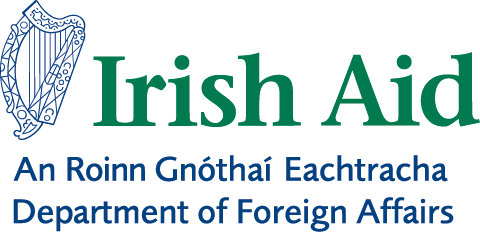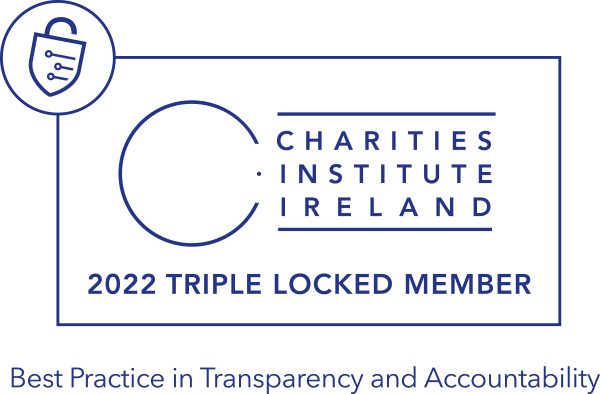Total Climate Resilient Livelihoods Spending
€2,200,511
€1,590,494
Sustainable Agriculture
€350,099
Small and medium
scale enterprises
and cooperatives
€165,000
Savings, Loans
and Microfinance
€94,918
Natural Resource Management and Conservation
In 2022, we supported 51 livelihoods projects by 26 members, targeting 103,485 people in 15 countries.
Upholding the right to climate resilient livelihoods and jobs is the first of four objectives under our current strategy, driven by the ever more dire impact of climate change on communities in developing countries.
For missionaries, addressing the climate crisis and its disproportionate impact on vulnerable populations is a top priority. With 2.5 billion people working and depending on small-scale farms, lasting solutions to the problems of rising temperatures, changing weather patterns and dwindling water resources will be necessary to ensure household incomes and food security for the long-term.
In 2022, our members’ livelihoods projects showed great commitment and innovation to help prepare for an uncertain future. Their projects are supporting households (especially female-headed households) and communities as they learn to practice sustainable agriculture and land practices as a means to improve their food and nutrition security and diversify incomes. We were also pleased to support many initiatives that improved access to renewable energy and sustainable technologies in marginalised communities.
With support from Misean Cara, our members projects are advancing progress on meeting the 2030 UN Sustainable Development Goals 2 (Zero Hunger) and 8 (Decent Work and Economic Growth).
Faithful Companions of Jesus/Solidary with South Sudan, Riimenze, South Sudan
450 households trained in eco-friendly farming methods
Franciscan Sisters of the Immaculate Conception, Kericho, Kenya
1,067 households achieved increased income through community Savings & Loan programmes
Franciscan Brothers, Baraka Agricultural College, Northern Kenya
Training on income diversification, food and nutrition security for 1,200 people
Since 2015, our members have also taken inspiration from Pope Francis’ encyclical Laudato Si’ to mobilise and care for our common home, achieve climate and ecological justice and respond to the cry of the earth and the poor. In November, we presented the annual Misean Cara Climate Action Awards to projects and individuals who are actively involved in helping the communities hardest hit by the effects of climate change. You can read more about the 2022 Climate Action Awards on p. 12 of this report.
IMPACT*
89,201
individuals in 14,853 households improved their earning potential
50%
of households reached by livelihoods projects were female-headed or child-headed
4,941
contributions made to improving human and natural systems affecting climate resilience, including heat and drought resistant crops and water saving methods
11,767
families (70,602 individuals) improved dietary diversity (including 13,276 women and 9,987 children under the age of 5.)
*These figures represent a subset of results reported by our members in 2022 using funding allocated in 2021.

Empowerment through climate resilient farming in western Zambia
Misean Cara member
Edmund Rice Development
Country
Zambia
The Western Province of Zambia is home to more than one million people (1.3 million according to the 2022 population census), more than 80% of whom depend on subsistence farming. It is the poorest of Zambia’s ten provinces*.
Edmund Rice Development has supported projects in Western Province since 2016, when their implementing partner, the Congregation of the Christian Brothers, first moved into the area to live and work alongside the poor. With Misean Cara funding, the project takes a multi-faceted, rights-based approach to tackling the root causes of poverty in the Province.
Farming is the main source of income for most families, who grow crops such as corn, rice and cabbage. The soil is rich but climate change is making erratic rainfall a problem with long-term implications for farmers and their families. A traditional lack of crop diversity also makes farmers and their incomes more vulnerable to the effects of climate change.
Through its current two-year project, the Christian Brothers work with over 2,200 subsistence farmers (1,400 women and 840 men) to improve their livelihoods and increase food and nutrition security for their families. Farmers are being trained in organic agriculture techniques to offset soil depletion and help improve yields. Farmers are also diversifying their crops, reducing their dependency on corn by intercropping with peas, groundnuts, sunflower and other crops that bring extra nutrients to the soil. The project team is also running practical courses in courses in business to help small-scale farmers earn more money for their produce, while mixed farming will enable them to diversify their income sources.
In addition, five boreholes are being drilled to provide water to 1,000 households. Families will have closer access to safe, clean drinking water, sparing many women and girls having to walk long distances to draw water.
*Zambia Demographic and Health Survey, 2018 (Zambia Statistics Agency, 2020).
For further information about our work or to comment on this report, please contact:
Misean Cara
4th Floor, Callaghan House,
13-16 Dame Street, Dublin 2,
D02 HX67, Ireland
Tel: +353 (0) 1 405 5028
Email: info@miseancara.ie
Facebook: /MiseanCaraIreland
Twitter: @miseancara
©2023 Misean Cara

Misean Cara gratefully acknowledges the funding support of Irish Aid.

Misean Cara has signed the Dóchas Code of Conduct on Images and Messages for Non-Governmental Development Organisations.

Misean Cara has achieved the triple-lock standard of good governance & reporting standards.

Misean Cara gratefully acknowledges the funding support of GHR Foundation.

Misean Cara gratefully acknowledges the funding support of ESB Electric Aid.

Misean Cara gratefully acknowledges the funding support of Americares.
